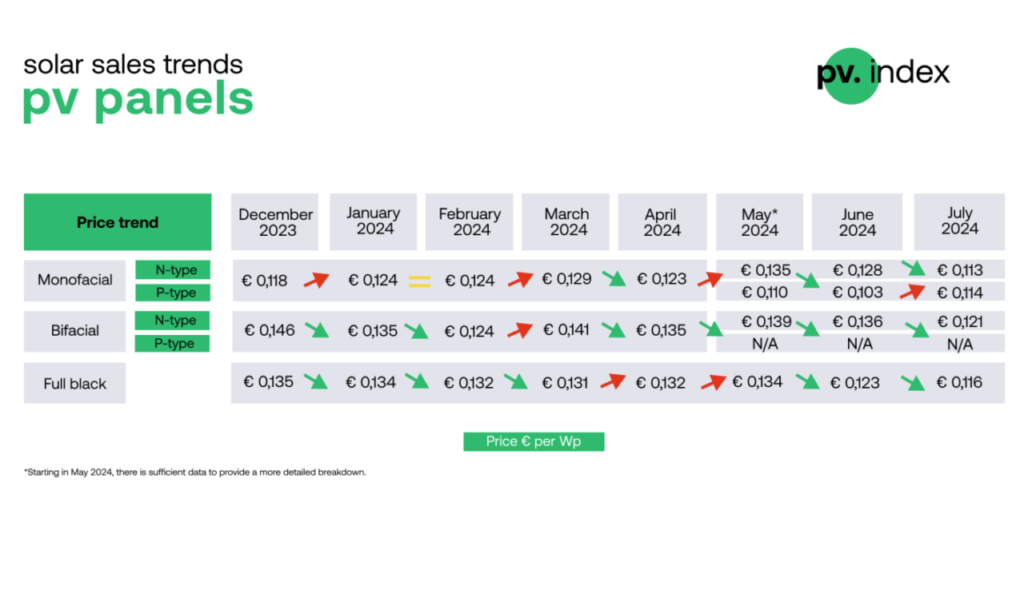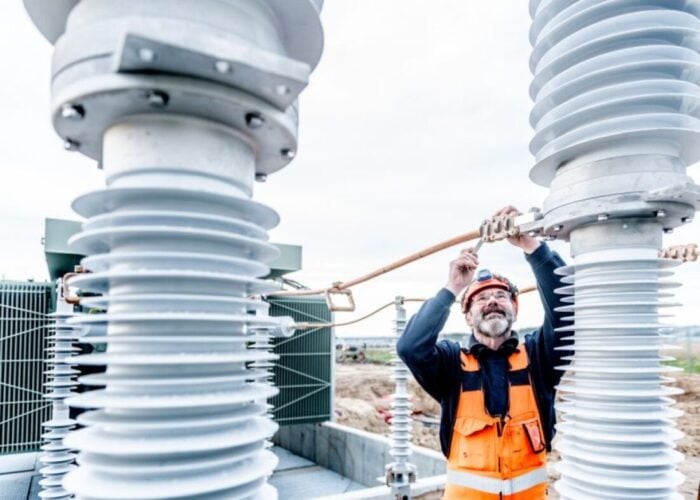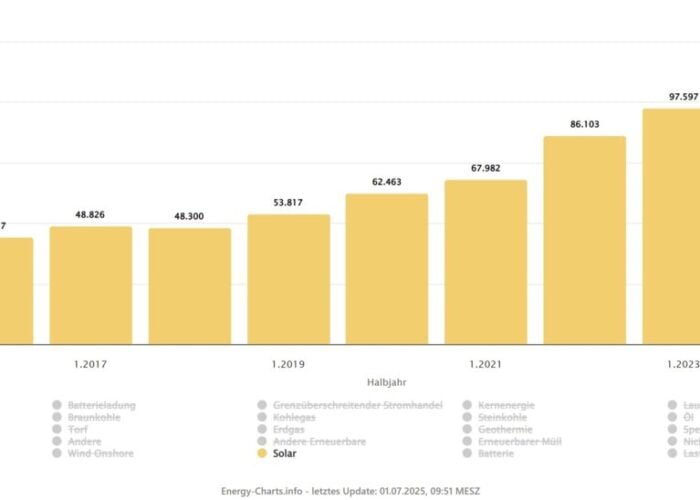
The price of n-type solar modules has continued to decline in Europe thanks to oversupply and “fierce competition” amongst manufacturers, according to the latest pv.index report.
Released by solar wholesaler sun.store, the pv.index report for July showed that the average price of monofacial n-type solar modules in Europe fell 13% over the month, from €0.128/Wp to €0.113/Wp. Bifacial n-type modules also dropped by 11% to €0.121/Wp and full black module prices fell by 6%, to €0.116/Wp.
Unlock unlimited access for 12 whole months of distinctive global analysis
Photovoltaics International is now included.
- Regular insight and analysis of the industry’s biggest developments
- In-depth interviews with the industry’s leading figures
- Unlimited digital access to the PV Tech Power journal catalogue
- Unlimited digital access to the Photovoltaics International journal catalogue
- Access to more than 1,000 technical papers
- Discounts on Solar Media’s portfolio of events, in-person and virtual
Agata Krawiec-Rokita, CEO & co-founder of sun.store, attributed this to global manufacturing trends: “In July, we have witnessed a continuation of the trend where prices are declining, particularly in the n-type and full black modules. This is largely due to ongoing overstock issues across Europe and fierce competition among manufacturers to clear out inventories.”
The only modules to increase in price were p-type products, which increased by 11% on average from €0.103/Wp to €0.114/Wp. Sun.store said this was due to “a surge in demand for specific p-type models,” which are likely to soon be discontinued.
Indeed, the solar manufacturing industry is generally shifting from p- to n-type products. The most recent iteration of the International Technology Roadmap for Photovoltaics (ITRPV) predicted that n-type tunnel oxide passivated contact (TOPCon) modules would occupy over 50% of market share up to 2034.
The pv.index report is based on sun.store’s trading data, which it says is the “biggest” online trading platform for solar components.
Buyer confidence stays level
Sun.store also released its PV PMI (PV Purchasing Managers’ Index), a scheme to gauge market demand and confidence. The system runs on points to measure buyer’s plans, whereby numbers above 50 represent projected growth, 50 show steady growth, and below 50 show a projected decline.
July saw a rating of 68, the same as June though down slightly from 72 in May. Sun.store said that this score remains “robust”.
In July, 50% of respondents plan to increase their purchases, 37% intend to maintain their current purchase levels, and only 13% expect to decrease their orders. These percentages are very similar to those reported in June.
The monthly PMI score has fluctuated between 73 (in February) and 68 so far this year.
Krawiec-Rokita said: “The seasonal slowdown due to summer vacations has also contributed to a reduction in installation activities. Despite these factors, market sentiment remains positive, as evidenced by our stable PMI score. We are closely monitoring the situation and anticipate that the upcoming months, especially with expected regulatory changes in September, will bring new dynamics to the market. The resilience of the industry continues to be a key highlight, and we are optimistic about future developments.”







